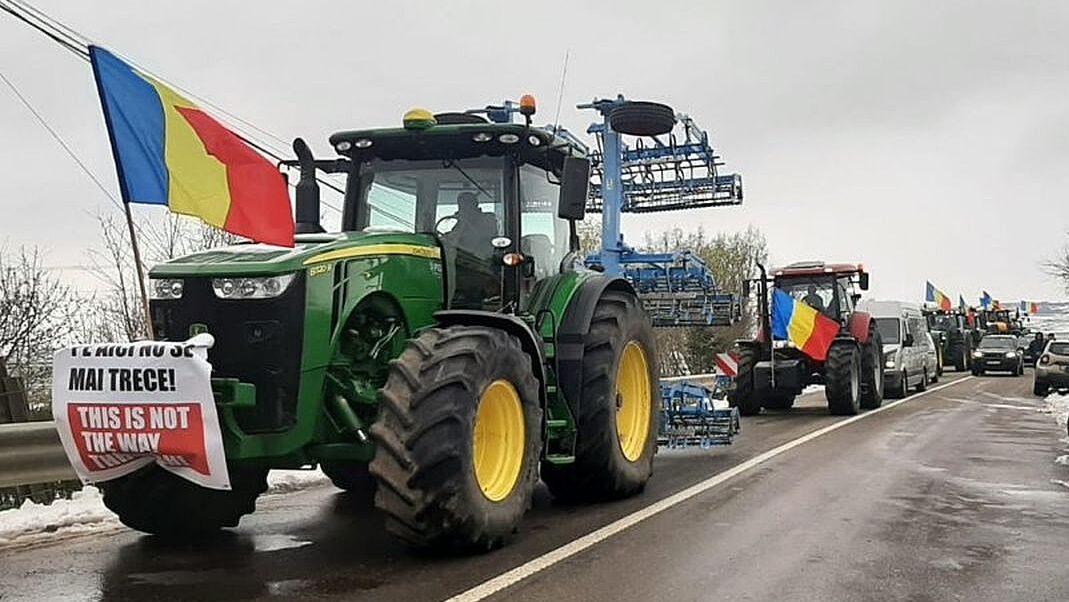
Photo: Brașov City Council / Facebook, 29 January 2024
The Romanian farmers’ and truckers’ unions who participated in country-wide protests these past several weeks agreed to stand down in exchange for seats on a new committee tasked with finding long-term solutions to their problems. The public body will launch alongside 25% diesel subsidies and €70 million in grants for animal farmers.
Protesters’ representatives signed the agreement with PM Marcel Ciolacu on Friday, February 2nd. According to an official government press release, the finalized document stipulates that “an inter-ministerial committee will be set up … to analyze and find the best solutions to the protesters’ claims.”
Said committee will be composed of a secretary of state from each “relevant” ministry as well as representatives of the farming and trucking unions. Each specific question will be addressed first by the ministry and a union delegate, then coordinated with the other ministries within the committee.
This agreement comes on top of measures already conceded by the government to address the most urgent needs of the farmers, including a significant diesel subsidy for those carrying out mechanized work in the agricultural sector. This works by imposing a cap on the fuel tax rate at €21/1,000 liters throughout 2024. According to the government, this effectively means a 25% fuel price cut for farmers who use diesel-powered machinery.
The measures adopted at the end of the last month also mean that animal breeders will be able to request grants to compensate them for lost earnings due to energy and feed cost hikes.
Cattle and buffalo breeders can apply for a one-time aid of €100/animal and up to a maximum of €280,000. The total sum allocated for this scheme is €16.1 million, with the government estimating the potential number of beneficiaries to be 6,000, owning around 160,000 head of cattle.
Similar schemes were introduced for poultry and pig farms, totalling €30.7 million and €25.6 million respectively, although with a shorter, six-month deadline.
There’s much less done for truckers, who—like those in other countries neighboring Ukraine—have not only been protesting high fuel prices but also unfair competition with Ukrainian truckers, who can take advantage of the EU’s temporary agreements with Kyiv.
To date, Bucharest granted truckers only a symbolic concession by changing the legal framework so that they are no longer fined for expired vignettes (time-based road charges) if there are unusually long waiting times at customs, with other preliminary agreements also possible. “I think this is the right gesture until we come up with another solution in the set of measures agreed with the carriers, that of dedicated lanes at the border and in the Port of Constanta,” PM Ciolacu said.
The concessions won, so far, by the truckers look inferior to those won by the farmers. Moving forward, both groups of participants in the populist revolt will need extreme caution when faced with the risk that the campaigns in defense of their way of life could be outmaneuvered and neutralized in government committees.
